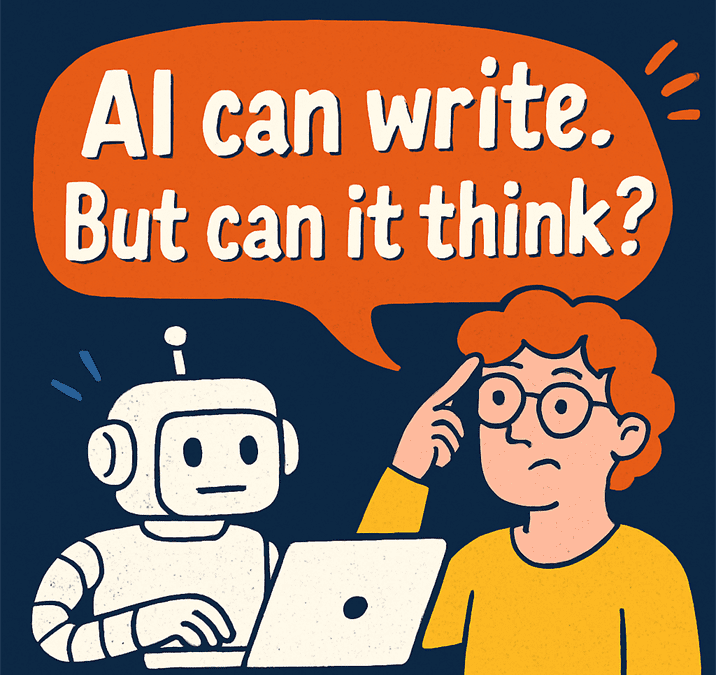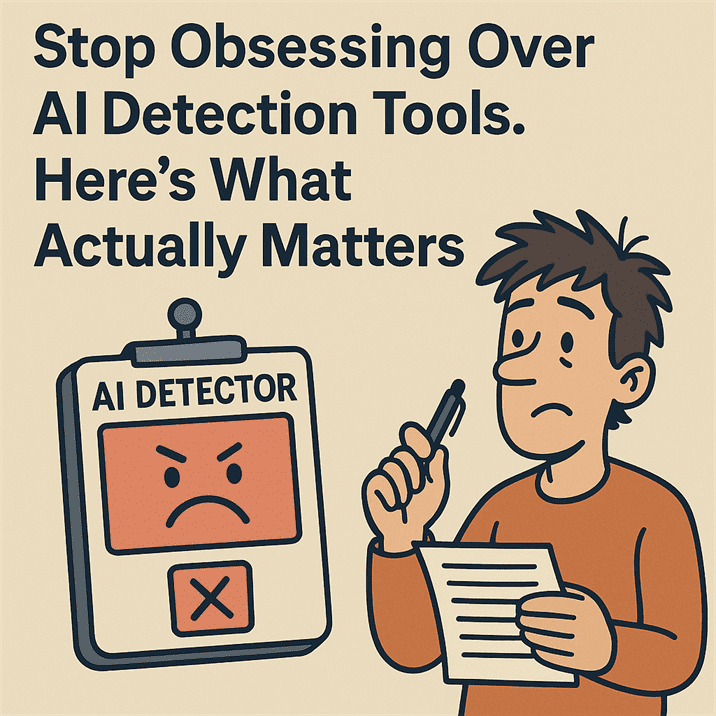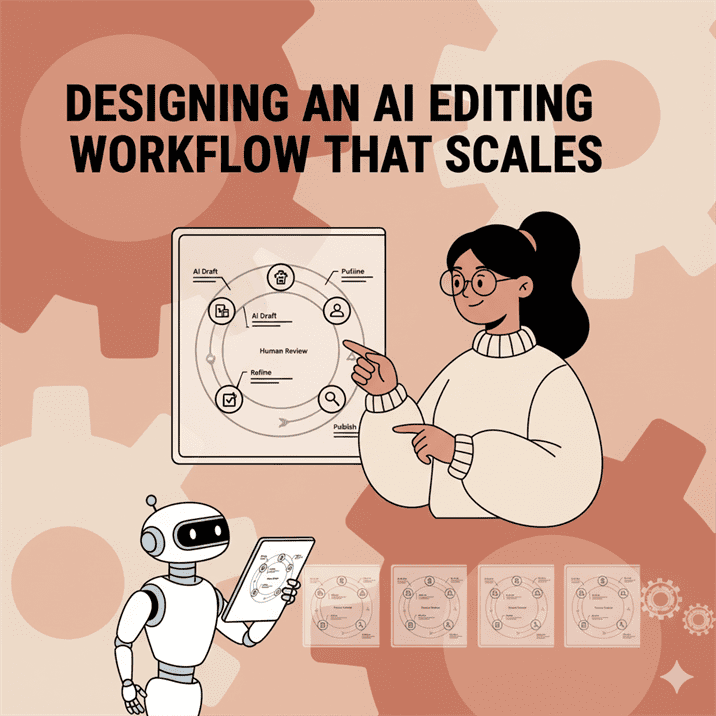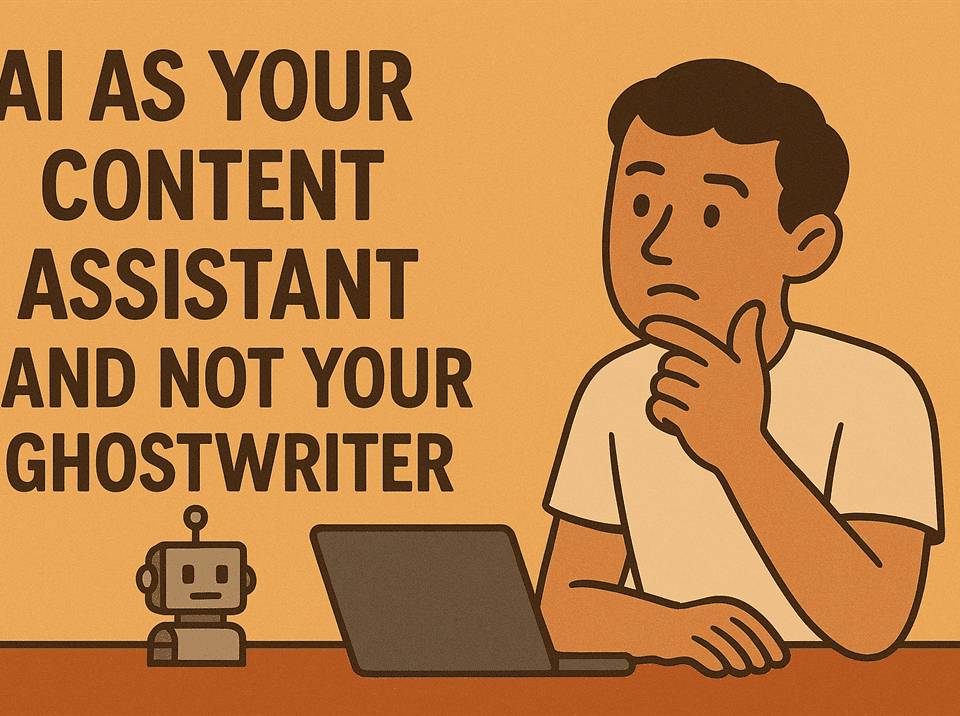AI can write. But can it think? (Spoiler: nope)

AI is doing impressive things. It can spin up a blog draft before you’ve finished saying “wait, did I just approve that?”
It can summarise a 30-page report like it’s skimming gossip.
It can even nail a brand tone close enough to fool your social media manager on a Monday morning.
But here’s the truth bomb: AI doesn’t think. It calculates. And there’s a difference.
One is how humans decide not to text their ex at 2am. The other is maths.
Despite the headlines promising robot enlightenment, AI lacks three rather crucial ingredients for quality content: context, judgment, and intuition.
Also known as “what your favourite writer does when they delete an entire paragraph because it technically made sense but emotionally read like a lukewarm cup of beige.”
Let’s break it down:
- It doesn’t get audiences. It knows demographics, not desperation, joy, or sarcasm.
- It has no opinions (which, let’s be honest, makes it the least annoying member of any team meeting).
- It can’t spot nuance or realise that one poorly worded sentence might cause a small internet fire.
That’s why we have humans. Editors. Writers. Word nerds with an eye twitch and a weird passion for em dashes.
Well a passion for em dashes that is rapidly disappearing because AI is using it so much that everyone assumes its presence means AI did it.
Human thinking is where the actual magic happens.
Not just spelling and commas, but real behind-the-scenes wizardry like understanding subtext, emotional undertones, and the quiet power of saying just enough.
Yes, AI can write. Faster than anyone. At scale.
While you’re still deciding if you want oat milk or just sadness in your coffee.
But without human oversight, you risk pushing out content that’s bland, biased, wobbly with the facts, or just aggressively pointless.
The ethics bit: where we draw the ‘please don’t’ line
Speed is seductive. AI gives you 50 blog posts before your second cup of tea has gone cold.
But here’s the million-pound question: would you put your name on it?
Because that’s the line.
Ethics in content isn’t just “don’t plagiarise”.
It’s about:
- Checking facts like your reputation depends on it (because it does).
- Being honest when AI helped write it (robots deserve credit too, right?).
- Cutting the bias, filler, and fluff that screams “SEO filler with daddy issues.”
- Editing for tone and clarity so it doesn’t read like it was written by an alien with a thesaurus.
- Respecting readers. They’re not metrics. They’re people. With eyes. And opinions.
We’ve all seen the brief: “100 posts by Friday!” Great. What are we saying, though?
Because nobody reads content and thinks, “Wow, that hit the word count so hard.”
Editors and writers shouldn’t just be a spellcheck with legs.
We’re the quality filter. The ones making sure what gets published actually makes sense, sounds human, and doesn’t quietly erode trust with every vague, overqualified sentence.
Where AI falls flat on its pixelated face
Let’s get brutally honest. AI’s biggest talent is sounding confident about things it doesn’t understand.
Like that one friend who always starts sentences with “Technically…”
Here’s what AI messes up regularly:
- It loves patterns. Insight? Not so much.
- It repeats outdated info like a parrot with bad WiFi.
- It has no idea what’s strategic for your business.
- It’s allergic to originality. Voice? What voice?
- It misreads tone like an intern replying-all.
And then there’s the hedging. Oh, the hedging.
Every claim smothered in qualifiers. Just in case.
Like a legal disclaimer came to life and got a job in marketing.
Sure, it can crank out thousands of words in a blink.
But ask yourself: are those words useful? Or are they just filling space like a corporate beige wall of nothing?
If your content sounds polished but says absolutely nothing new, there’s a good chance your AI is doing too much heavy lifting, and your audience is quietly backing away.
Final thoughts (and one good quote)
AI is here. And it’s staying. It’s fast, clever in a Rain Man sort of way, and occasionally terrifying.
But it’s still a tool.
Not the writer. Not the thinker. Definitely not the editor.
A wise human (who I like so much I’m shamelessly quoting them) once told me:
“Treat AI like a PA. Tell it what you want, be specific, and always check the work before it leaves the building. Your name’s on it.”
Yes. Exactly that.
AI can support great writing. But it can’t replace the kind of editorial thinking that makes content feel real. The kind that earns trust, reflects your values, and doesn’t make people wonder if a robot’s having an identity crisis.
Because content is still about people. And people can tell when something wasn’t written for them.
Trust can’t be automated. Empathy can’t be faked. And experience? That’s still firmly in the human column.



